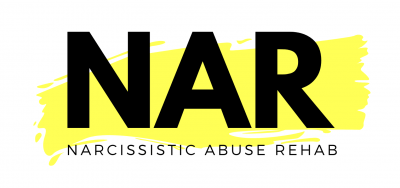Dealing with a narcissist can be enormously challenging and downright exhausting. Not only do their self-centered behaviors harm them; they can also cause significant stress and frustration for those around them. What can you do when you must deal with a family member, friend, or coworker with prominent narcissistic traits? This article will help you recognize a narcissist by discerning the typical signs of dysfunctional narcissism and offer some strategies to help safeguard your well-being.
Recognizing a Narcissist: The Common Signs
Many people casually use the term “narcissism” to describe someone who is self-centered. However, narcissism is a trait all people possess to a greater or lesser degree and only becomes problematic when it is impaired, i.e. when it presents as subclinical narcissistic traits or narcissistic personality disorder (NPD).
It’s important to understand that narcissistic personality disorder (NPD) is a specific mental health condition. Studies suggest that up to 6% of Americans could experience NPD, with the majority being men. It’s important to note that these individuals aren’t just displaying occasional signs of pathological narcissism; rather, they exhibit consistent and pervasive patterns of behavior characteristic of NPD.
People diagnosed with narcissistic personality disorder are primarily identified based on nine criteria outlined in the Diagnostic and Statistical Manual of Mental Disorders (DSM-V). Knowing these criteria may help you learn to recognize a narcissist. They include:
- Grandiosity: A grandiose sense of self-importance.
- Fantasies of success, power, brilliance, or ideal love.
- Belief in being special or unique and deserving special treatment.
- Need for excessive admiration.
- Sense of entitlement, expecting automatic compliance with their expectations.
- Exploitative behaviors in relationships.
- Lack of empathy, unwillingness to recognize or identify with the feelings and needs of others.
- Envy of others or belief that others are envious of them.
- Arrogant or haughty attitudes and behaviors.
All of these traits can manifest in various ways. For example, a narcissistic person might cheat in a relationship to seek attention. They may stoop to lying and manipulation in the workplace to achieve their goals, or they might belittle those around them to feed their sense of superiority.
While narcissistic people may not fully grasp the impact of their behavior on others, those who regularly interact with them may experience significant emotional distress.
How Can You Effectively Deal With a Narcissist and Protect Your Well-Being?
Dealing with narcissists can be tough, especially when you’re in close quarters with them day in and day out. Their attitudes and behaviors can really mess with your mental health. But don’t worry, there are ways to handle them without losing your sanity. Here are some tips:
Learn About Narcissism
Understanding the behavior of narcissistic people can often feel like trying to solve a puzzle with missing pieces—it’s enigmatic and overwhelming. But fear not! Developing an understanding of narcissism and what happens when it’s impaired can fill in those perplexing gaps.
There’s a significant stigma surrounding narcissistic people, but it’s important to remember that they aren’t always intentionally cruel. They sometimes lack the self-awareness and empathy to understand recognize that their behavior is maladaptive and its adverse impact on others. Behind their facade, they may be wrestling with a tsunami of emotions and social challenges.
Deep down, narcissists harbor insecurities and fear having their flaws laid bare. When their grandiose dreams collapse, they may spiral into anxiety, depression, or even turn to alcohol or suicidal ideation.
By learning about narcissism, you can approach these challenging relationships with more understanding, compassion, and skill.
Keep Your Emotions in Check
People who are excessively narcissistic have a knack for taking you on an emotional rollercoaster ride if you let them.
They may devalue others to boost their ego, lash out when they feel overlooked or undervalued, and spiral into depression when they fall short of the glory. They may also manipulate other people’s emotions or blame-shift to maintain a sense of control.
If you’re dealing with a narcissist it’s important to emotionally divest and take a stance of compassionate detachment. This will prevent you from falling into a reactive, emotional state which makes you ripe for exploitation. That’s why it’s crucial to disengage, pull yourself together, and maintain your composure when dealing with them.
Avoid Confrontations
Despite their outward abrasiveness, narcissists can actually be immensely fragile, and they often don’t handle confrontations well. That’s why it’s important to approach discussions about their behavior or provide feedback with care, reframing your message in a non-threatening light.
Make Informed Choices
Narcissistic people often have a tendency to be overly critical and impose unrealistic standards of perfection on those around them. This behavior often leads to frustration, anxiety, and self-doubt in those in their orbit.
When dealing with a narcissist, choose to communicate clearly and directly about what is realistically achievable. Choose to keep your communication with them brief and to the point. Manage their expectations effectively by stating exactly what is feasible and avoid lengthy explanations. Choose to communicate this in writing so that they cannot refute your agreement down the line.
Informed choices are a common sense way of asserting your boundaries with narcissistic people. Clarity might look like creating a plan, outlining tasks, and creating a realistic timeline for these tasks to be accomplished. It’s important to be specific with narcissistic people, so clarity might also include stating how much contact they can have with you during the process, i.e. “Project updates will take place on Mondays at 8:00 and 8:45 a.m.”
Clearly outlining what behaviors are acceptable to you and the consequences of overstepping those boundaries. For example, you might say something like, “I value my time. I don’t accept having my time wasted.” Be prepared to follow through on enforcing your boundaries if they are not respected, i.e. if someone wastes your time by showing up late for an appointment without giving you advance notice, either cancel the appointment or leave.
Commit Them to Action
Narcissists often backtrack on their promises. They may stoop to outright lying, manipulation, or confusion to evade commitments they’ve made. If you’re seeking a commitment from a narcissist, verbal assurances won’t cut it. Make sure you document agreements—whether through text messages or emails—to minimize the potential for gaslighting tactics.
Get Help
It’s understandable to feel bewildered by someone who is highly narcissistic. It can help to have a strong support network to help gain insight into the situation. Spending time with loved ones can help rebuild your self-esteem and help you resist their attempts to control how you see yourself and how others see you
For specialized support, book a free consultation to discover how narcissistic abuse recovery coaching can help you.
Decide When to Exit the Relationship
The extent to which you’re willing to reconcile with someone with NPD often hinges on the significance of your relationship with them.
Nevertheless, prolonged exposure to consistent narcissistic abuse can have detrimental effects on both your mental and physical health. If the person in question is unwilling to seek help or change their behavior, it may be necessary to prioritize your well-being by removing yourself from the situation.
To Recap
In conclusion, dealing with narcissistic people can be challenging and emotionally draining. It’s essential to educate yourself about narcissism and seek support from trusted loved ones or professionals. Remember, prioritizing your own well-being is the top priority, and if necessary, don’t hesitate to exit a toxic relationship for the sake of your mental and physical health.






